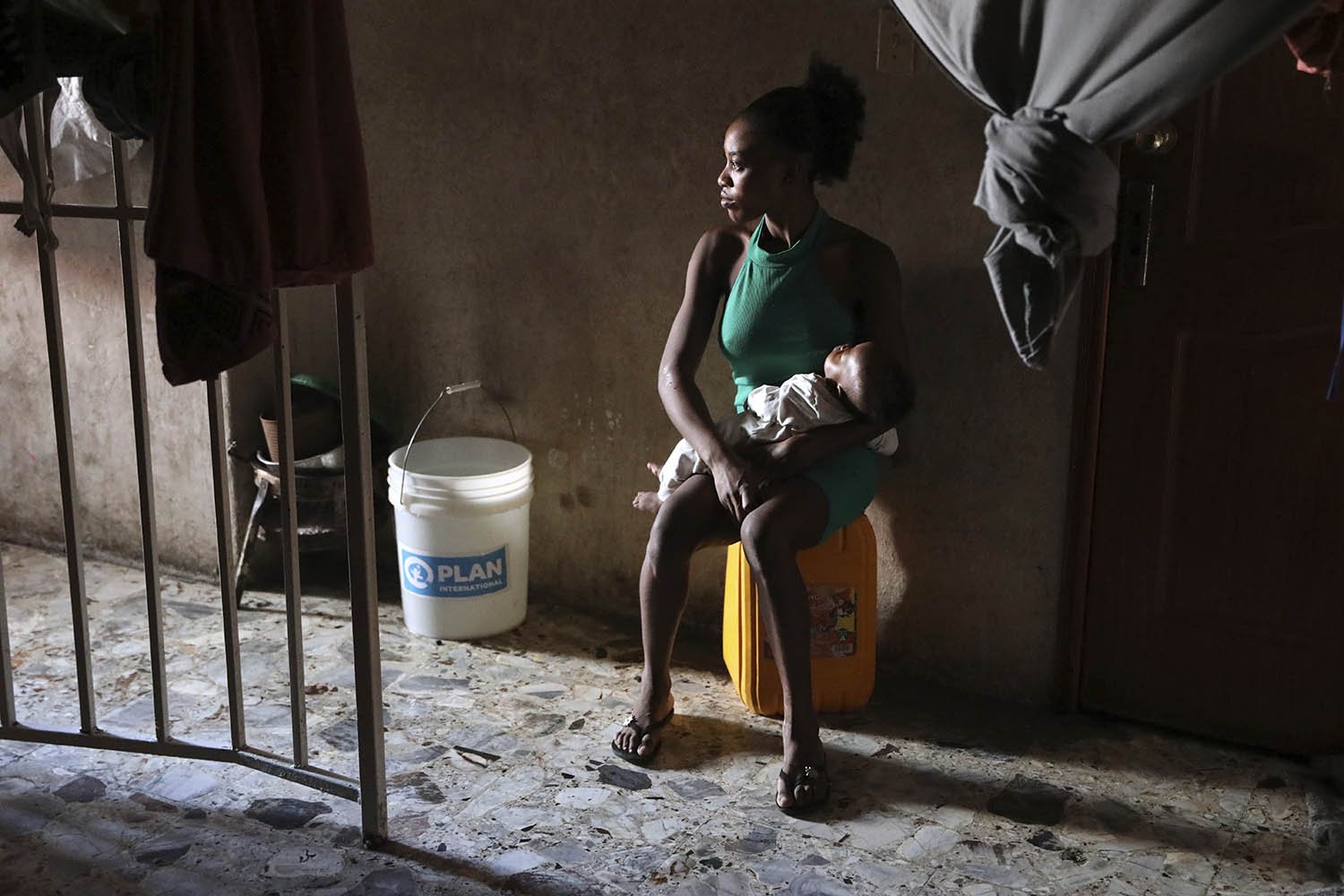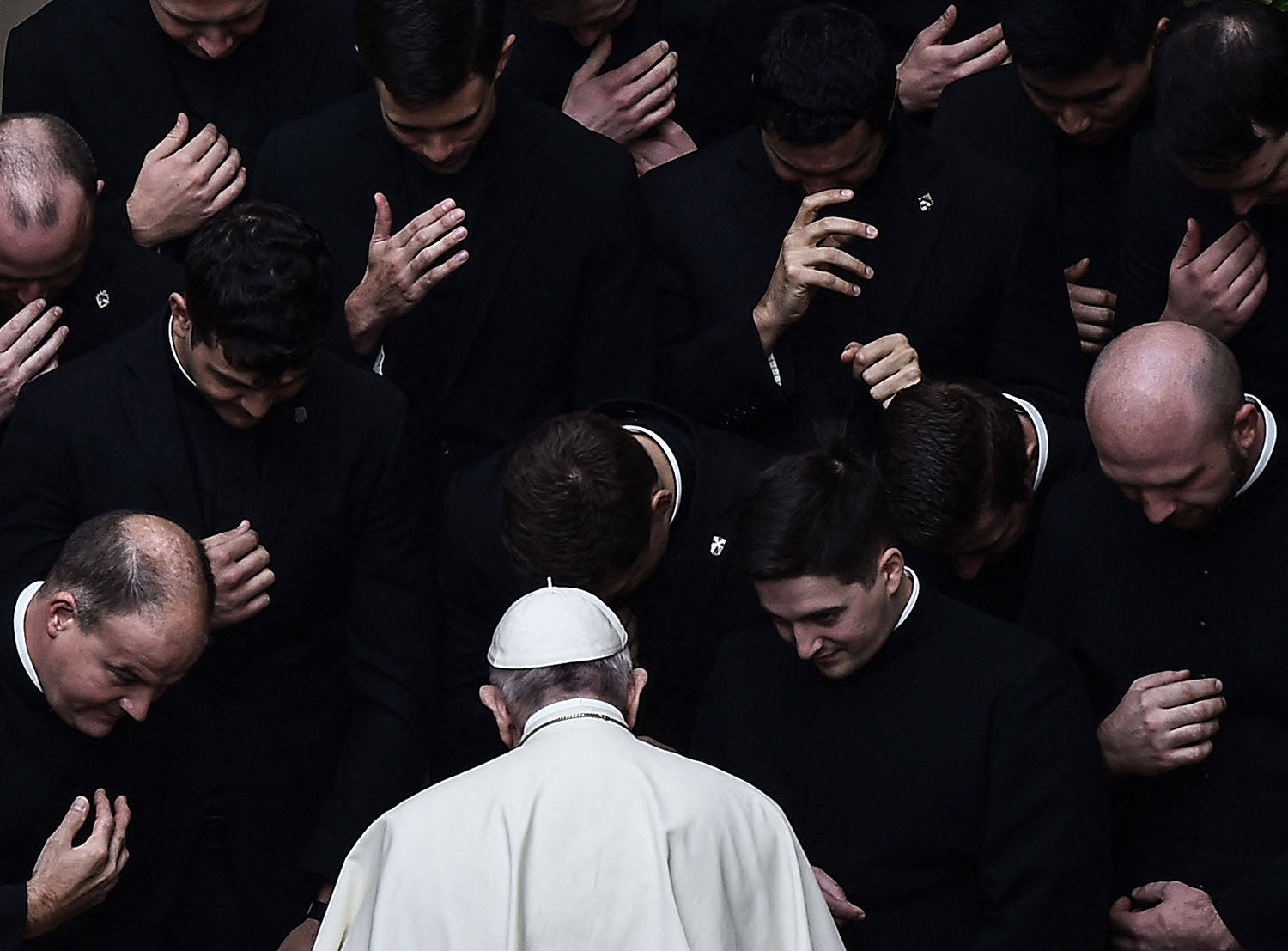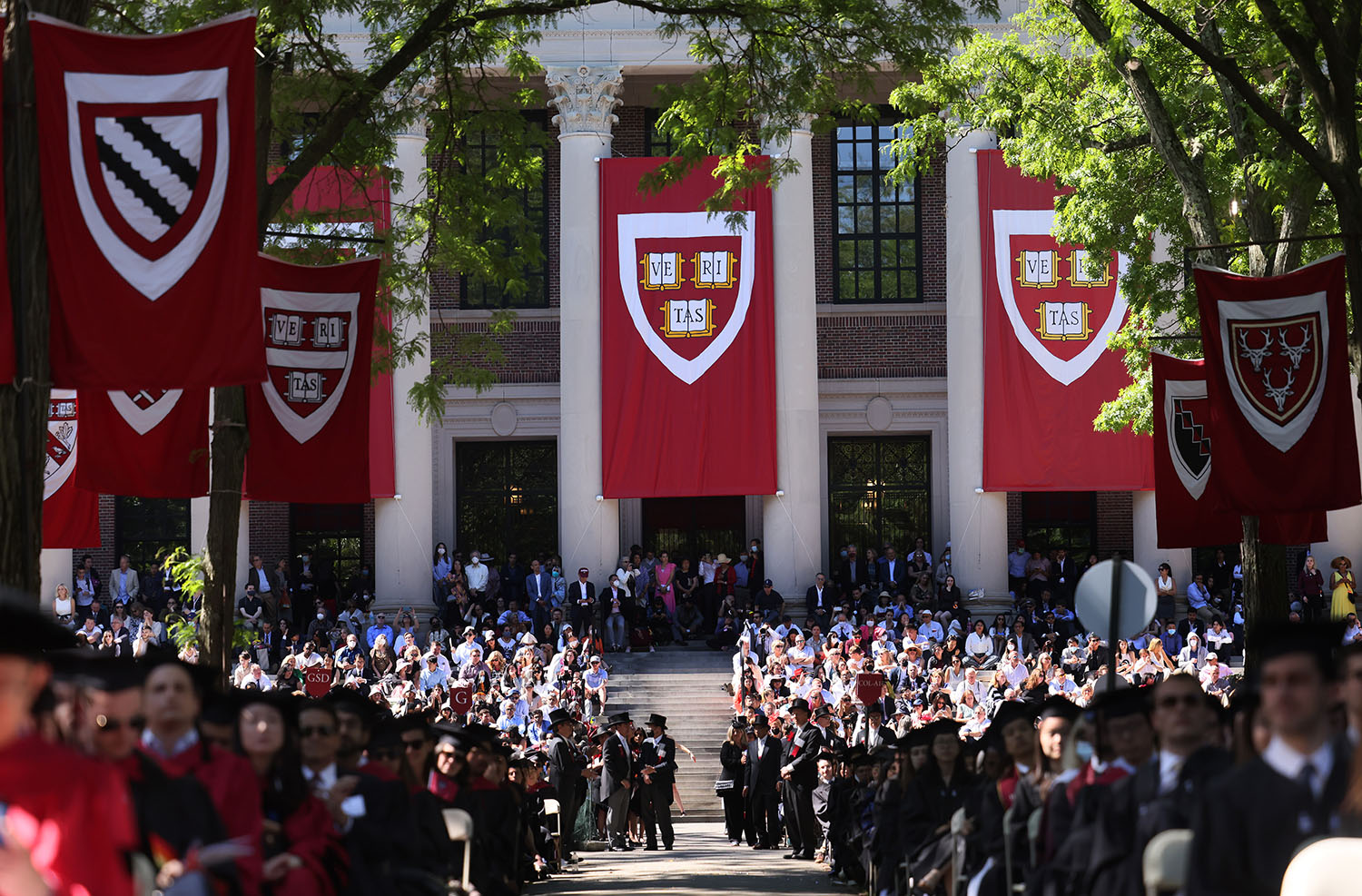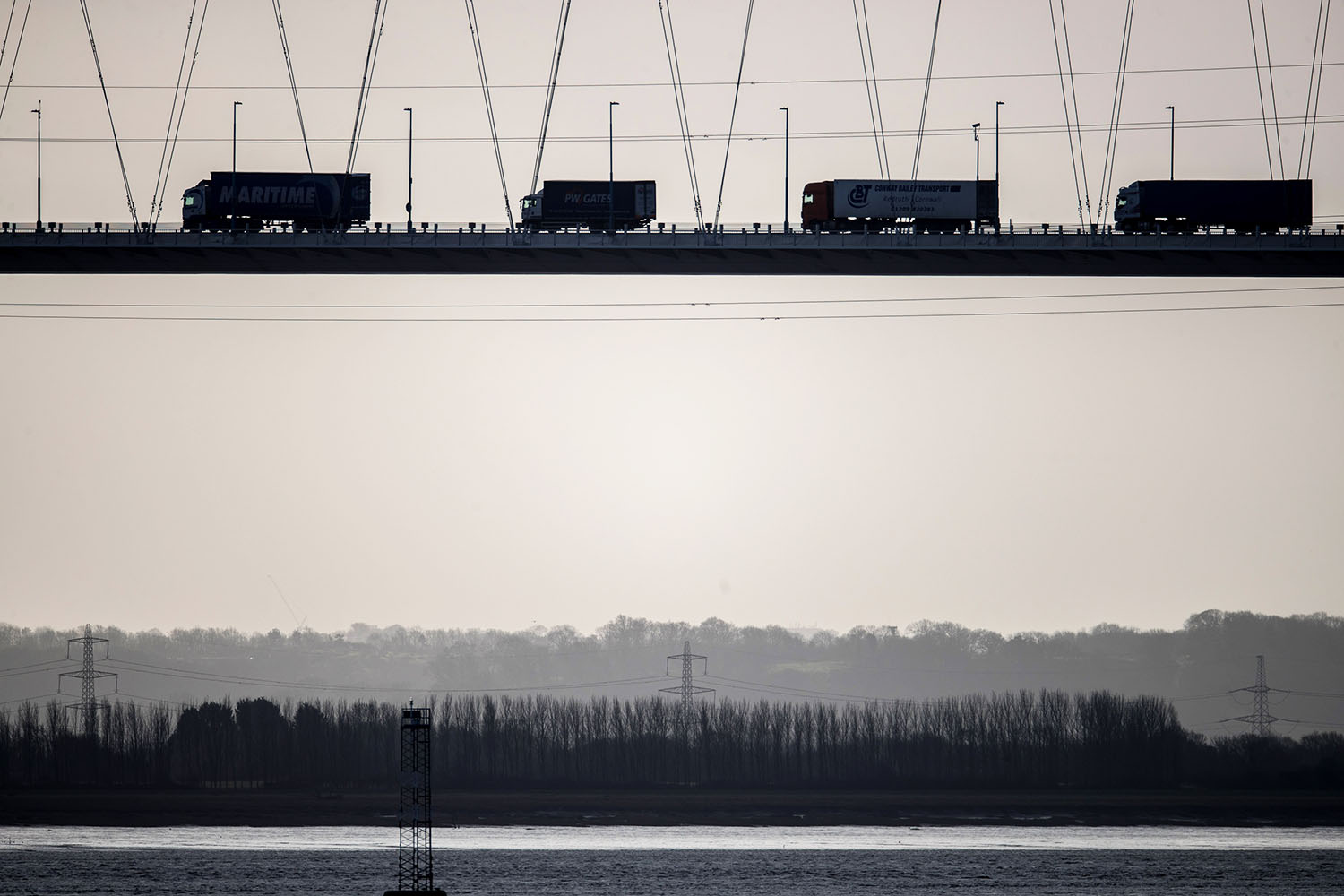If his party wins, it would have Trump to thank for an historic comeback
Canada’s prime minister Mark Carney called a snap election on Sunday, asking for a “strong, positive mandate” to deal with a potentially debilitating trade war with the United States.
Who? Better known as the former governor of the reserve banks of both England and Canada than as a politician, Carney won a contest to head the Liberal party on 9 March.
Born in the Northwest Territories, raised in Alberta and educated at Harvard and Oxford, the cosmopolitan economist has entered politics to lead the Liberals in a federal election.
So what? The Liberals trailed the Conservatives by 24 points in polls in January but now have a fighting chance of winning another term. Talk about a comeback.
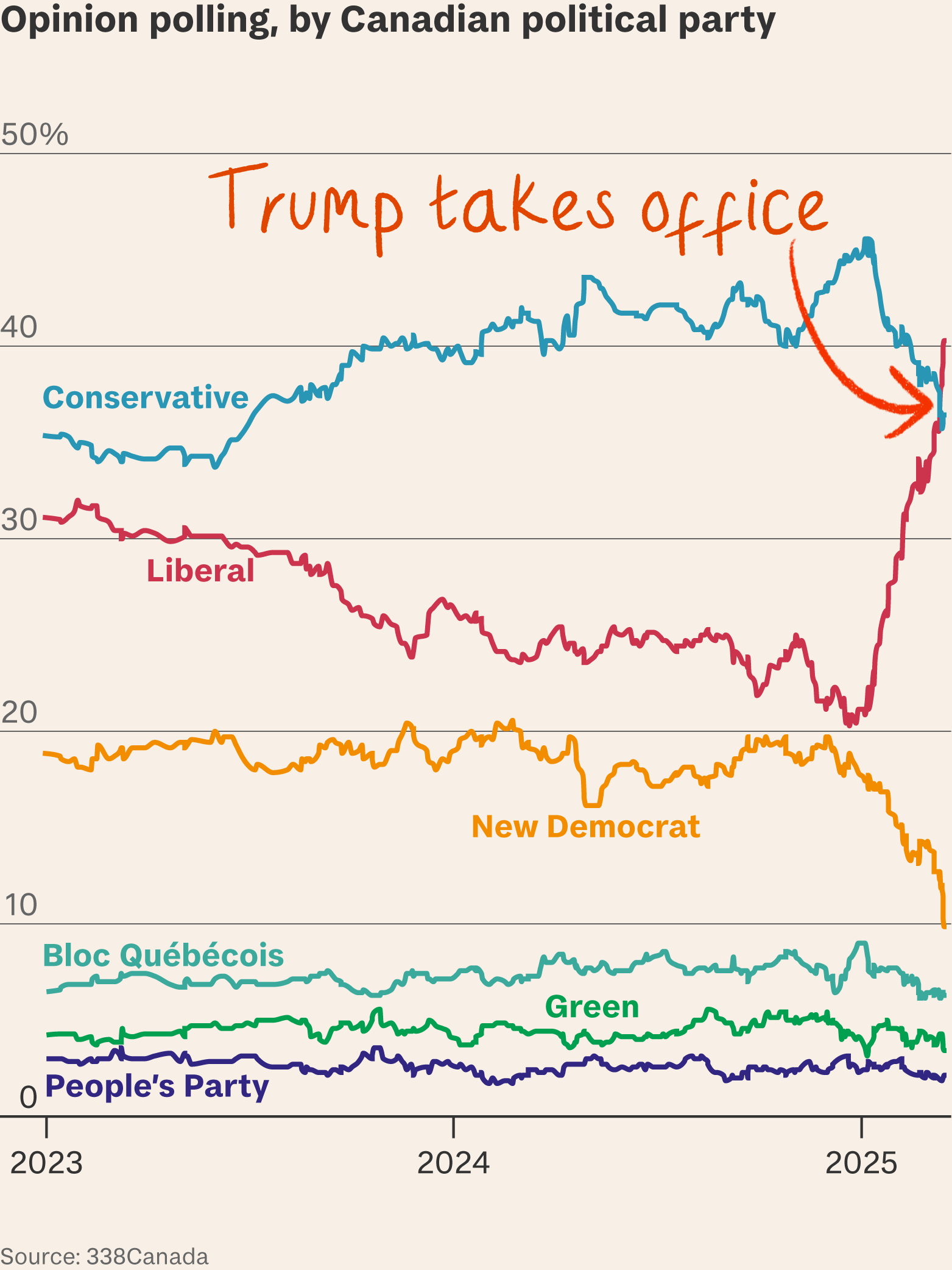
What happened?
- On 6 January, Justin Trudeau resigned as prime minister in the face of looming electoral annihilation.
- Then Donald Trump became Canada’s top concern.
Elbows Up! What started as a joke by the 47th US president about “governor Trudeau” and Canada becoming the “51st state” has turned serious.
- On-again, off-again tariffs have spooked the markets.
- Trump’s talk of annexation has seriously angered the normally mild-mannered Canadians.
- Elbows Up, an ice hockey term for preparing to fight, has become a rallying cry.
- The swell of patriotism for “the True North strong and free” has Canadians cancelling trips south of the border and boycotting American goods.
And the Conservative’s lead? Gone. Under Carney the Liberals have surged into the lead in polls for the first time in nearly three years.
Sigh of relief. The Liberals are now essentially campaigning against Trump, rather than against the formidable Conservative leader Pierre Poilievre.
Why? Until Trump took an interest in the north, no one could match the agenda-setting Poilievre’s ability to command attention. Since becoming Conservative leader in 2022, Poilievre has been laser-focused on beating a “woke” Trudeau in a “carbon tax election”. “Axe the Tax” is how Poilievre took aim at a scheme to add a carbon price to fuel that was largely rebated to households, successfully rebranding a complex policy as yet another tax on struggling Canadians.
“Maple MAGA” is now an unpopular flavour:
- With Trudeau gone and Carney ditching the targeted carbon tax policy, Poilievre has been flailing.
- The contest Poilievre sought to define as an affordability fight is now about standing up to Trump.
- Poilievre’s Canada-is-broken messaging resonates less in this newly patriotic climate.
- And to some his “Canada First” sloganeering sounds suspiciously Trumpian.
Don’t mess with Mark. Carney’s slogan is a stolid and reassuring “Canada Strong”. A globalist by training, he’s hoping to localise the concept by promising “free trade by Canada Day” (1 July), removing provincial barriers to the free movement of goods, services and workers within the country.
His plan for Trump? Stay calm and demand respect. The 51st state comments “will have to stop before we sit down”, he says. “They’re disrespectful, they’re not helpful and they need to stop.”
His plan for the election – to capitalise on his party’s rebounding popularity with the shortest legal campaign period.
- Election day will be on 28 April and pundits predict a close race.
- A rare fourth-term win for the Liberals would represent the greatest comeback in Canadian history.
Neck and neck. It’s not in the bag. Although some polls have the Liberals ahead, the race is too close to call and the seasoned Poilievre will be hoping the neophyte Carney will slip up on the campaign trail.
The Conservatives still command a motivated base angered by rising living costs during nine years of Liberal rule. Poilievre will seek to convince voters that Carney, who advised Trudeau during the pandemic, represents more of the same.
To counter this, Carney on Sunday promised a “middle class tax cut” – lowering the lowest tax bracket by one percentage point.
The Trump factor. The crisis he’s created may cause Canadians to seek a steady hand and re-elect the Liberals. But Trump remains the joker in the deck, with perhaps more ability to sway Canadian voters than the actual candidates. Counterintuitively, Trump’s recent suggestion that he sees the Liberals as more open to negotiating could work in Poilievre’s favour.
In his own words:
- It’s “easier to deal actually with a Liberal”.
- Poilievre “is stupidly no friend of mine”.
- As to who wins: “It doesn’t matter to me at all.”




